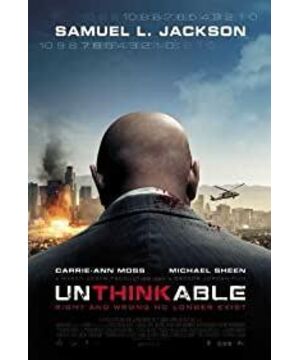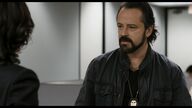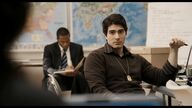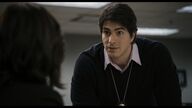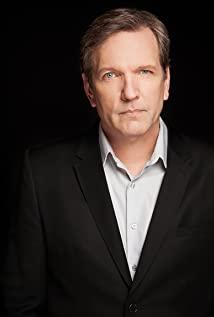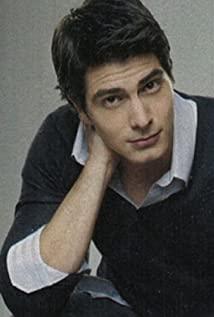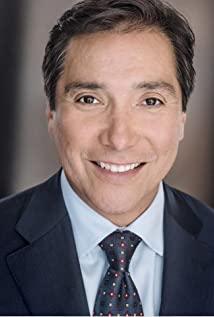Does the rationalist view of justice prevail, or does the utilitarian view of justice prevail?
If the rules and constitutions are not for the benefit of the majority of the people, what is the point of their existence? Just like a sentence in the film "The city has been blown up, where is there any constitution"?
These things are the paradoxes that "Strategic Task Force" provides people. Not "incredible", but a dilemma. Wise American constitutionalists would never have imagined that terrorists could successfully link the Constitution to the lives of people in several cities. Let the law enforcers pay attention to one thing and the other, and they are in a turmoil: in order to maintain the basic principles of the Constitution and the rule of law, it is impossible to use torture to extract confessions from terrorists; The department cannot escape the suspicion of malfeasance.
Some people may think that this film is a great provocation and mockery of the principle of the rule of law that must be included in a modern country. It reminds those who advocate "procedural justice" and "formal fairness" that procedural justice may cost so much substantive justice.
Whether this makes sense or not is irrelevant. But the author thinks, another way may be able to see more clearly. In a modern country, the attributes of the judiciary (court) are judicial rationality with the characteristics of independence, neutrality, passivity, impartiality, limited and procedural justice. It is only responsible for justice, not utility, and it only seeks justice in individual cases (limited view of justice), and it is impossible to achieve absolute justice. Political consequences are beyond judicial consideration. In 1786, the British judge Earl Mansfield made a famous saying in the "United Kingdom's Wilkes case" that triggered a constitutional crisis: "We must never consider political results, however terrible they may be. If Rebellion is the inevitable result, then we must say: 'Maintain justice, even if the sky falls'".
Uphold justice - even if the sky falls. So, what the female agent does is commendable? Black agents are despicable and shameless? It seems not so simple.
Yes, please note that the above is a property of the judiciary, not the executive. The judiciary did not appear in this film at all. The investigative agencies of the FBI and the military belong to the executive branch whose mission is to use the most efficient means to safeguard the interests of the people. The administration and the judiciary are active and passive, with checks and balances on each other. In the long-term constitutional practice process, the staff of the administrative department have gradually been tainted by a series of constitutional cultures such as the rule of law and humanitarianism, and have formed a rule of law culture such as respect for the rights of suspects, personal dignity, and non-torture to extract confessions. It is of great help to curb the abuse of power by administrative organs and ensure the freedom and rights of the people to the greatest extent possible.
However, everything has the right to have the scriptures. The criminals in this film are not ordinary criminals, but terrorists who threaten the lives of millions. In a state of extreme urgency, we see that the executive branch has recovered its original attributes: to use the most efficient means to safeguard the interests of the people. The black agent was allowed to interrogate criminals using previously unacceptable methods, and thanks to his rogue tactics, the criminals revealed three locations where nuclear weapons were stored. In fact, the decisive victory of the whole film was in the last few minutes: we saw that the culture of the rule of law resolutely prevented the rogue means, which eventually led to a tragedy in which a nuclear bomb became a "fish that slipped through the net". If people had been patient a little longer, things might have turned out quite differently.
The loss has been reduced by 3/4, which is certainly the merit of the administration, but even if one life is lost, it is irreparable. But let's think about it from a different angle: what if the nuclear bomb threat was completely eliminated because of the rogue tactics of the agents? In a country that is not ruled by law, a black agent may be hailed as a hero, or even awarded the honor of an excellent people's policeman; but the author believes that he must be tried by the law, and maybe the law will eventually send this great hero of the people. go to jail. Yes, that is the nature of justice. The constitution is the general rule of the country, the judiciary is the last barrier to justice, and the culture of the rule of law prohibits torture to extract confessions, but it does not prohibit the people from evaluating this black man as a good person.
This film is indeed a bit tricky for those who believe in the rule of law, but it is not a challenge. Perhaps all we need is a means of finding justice in this particular situation, rather than a total denial of the principle of the rule of law. In a country that does not respect the rule of law and legalizes confessions through torture, will terrorist acts disappear? Not seen. Terrorist actions should be based on social structure and public policies, and cannot be suppressed by tiger stools or chili water. The rule of law culture prohibits tiger stools and chili water, which means that the bottom line of justice is maintained, and justice is the foundation of the country.
View more about Unthinkable reviews


